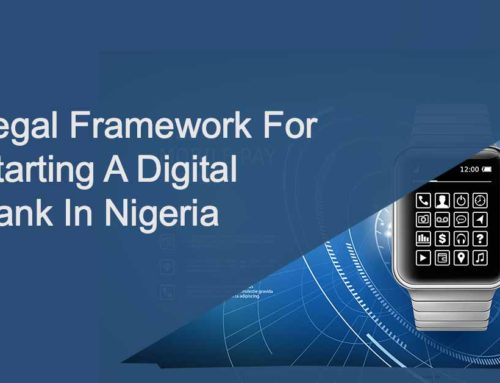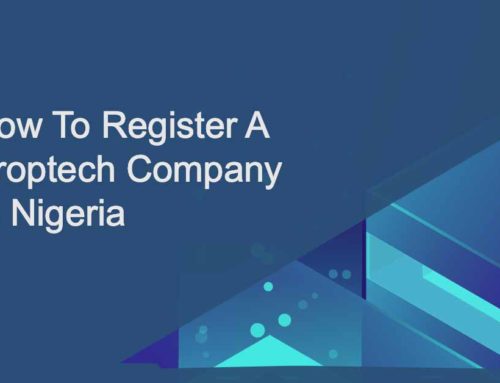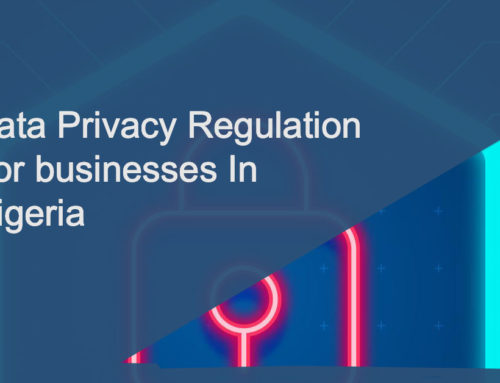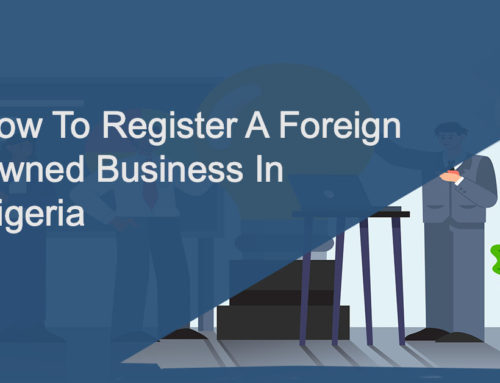What is Fintech?
Financial technology often referred to as “fintech” has been a thriving aspect of Technology in the past few years. It is a term used to describe the deployment of new technologies to financial services. It is a technological approach to concepts such as financial literacy and education, stock investment, cybersecurity, blockchain technology, retail banking, and crypto-currencies, amongst other innovations to make these financial transactions faster, easier, and easily accessible to consumers.
Recent developments in financial technology in Nigeria.
Financial technology has been a re-emerging, fast-developing sector within the financial services industry for several years now. Government and investors are increasingly drawn to the fintech evolution given its ability to revolutionize how people save, borrow and spend money.
In Nigeria, the number of FinTech companies has grown extensively over the years, driven by the need to increase the digitalization of financial services at a lower cost of operations, strengthen global regulatory structures, and upgrade FinTech services beyond mobile banking to include lending, insurance, investment, personal finance management, and others.
As of 2018, there were over 100 FinTech companies in Nigeria engaging in mobile money, credit, e-payment, and e-collection. In the same period, the total number of commercial and Microfinance banks stood at 23 and 940 respectively. Banks have been increasingly collaborating with FinTech companies to improve customer experience and enable faster and seamless access to their financial services. This collaboration has increased the performance of the industry at large and still has a lot of potential to do more in the future.
In 2019, Nigeria officially recognized its first FinTech Unicorn with Interswitch, achieving a valuation of $ 1 billion based on a $200million investment from Visa. Following shortly in 2020, Stripe a US-based financial services company agreed to acquire Paystack in a $200million deal, just five years after Paystack was founded.
The impact of the Covid-19 outbreak on FinTech companies cannot be overemphasized as it has led to an increased usage of digital banking services and online payment platforms for financial transactions. According to a PWC analysis, more than one-third (36.8)% of over 99million adult population in Nigeria were excluded financially as of 2018. That figure amounts to about or over 30 million Nigerian adults.
Also, the Central Bank of Nigeria’s National Financial Inclusion Strategy (NFIS) is designed to ensure a financial inclusion rate of 95% by 2024. Doing this will require a collaborative effort between industry stakeholders including FinTech companies. Mobile Money Operators (MMOs) are the key to driving the actualization of a financially inclusive society. Kongapay, Paga, and Fetswallet are some of the MMOs in Nigeria currently.
Categories of financial technology companies in Nigeria
Payments, Mobile Money and Digital Banking
Provision of payments and account solutions for consumers and financial institutions. Includes mobile money and wallets, digital banks and accounts, payment processing and switching, Global transfers and remittances, and payments back-end infrastructure providers.
Lending
Provide loans to consumers and SMEs online. FinTech lenders assess borrowers’ credit worthiness and automate the underwriting process. FinTechs in this segment provide digital lending platforms such as web apps and mobile apps.
Savings, investment, and crowdfunding;
Provide solutions to help consumers save money. They also help private and institutional investors to buy, sell and manage assets and securities. This category of Fintech provides digital wealth and asset management, Automatic savings platforms, alternative investments, international investments platforms, and crowdfunding.
Enterprise services and infrastructure
Provide enterprise software and solutions for the financial sector. Credit infrastructure, APIs and Connectors.
Cryptocurrency
Access to digital cryptocurrency markets and exchanges to enable users to pay or accept cryptocurrency, cryptocurrency exchanges, and wallets. Currently, there is no existing legal framework that supports the operations of cryptocurrency companies in Nigeria. Hence, cryptocurrency companies that were hitherto operating in Nigeria have had to move their offices to crypto-friendly countries.
InsurTech
Digital insurers, insurance comparison services, Digital agents and distribution platforms, and insurance system providers.
Regulation of Financial Technology companies in Nigeria.
It is necessary to know the existing regulatory bodies of each category of financial technology companies before incorporation. The major Regulator of Financial technology companies is The Central Bank of Nigeria (CBN) which derives its powers to regulate from The Banks and Other Financial Institutions Act, 2020(BOFIA). Other regulators include The National Deposit Insurance Corporation by virtue of the NDIC Act, 2006, The Nigerian Communication Commission by virtue of the Nigerian communication Act, 2003, and The Securities and Exchange Commission (SEC) by virtue of the Investment and Securities Act, 2007, National Insurance Commission and The Corporate Affairs Commission(CAC) by virtue of the CAMA 2020.
Other key regulations;
- Open Banking Framework
- Nigeria interbank Settlement System (NIBSS)
- Financial Services Innovators (FSI)
- Sandbox Operations Framework
Requirements and eligibility
Under the recently released CBN rules, For a Fintech company to fully operate in Nigeria, it must first be registered with the Corporate Affairs Commission (CAC) with a restrictive Memorandum and Article of Association. Afterward, it must have been fully licensed by the Central Bank of Nigeria, after necessary Applications must have been made and necessary documents tendered.
Incorporation/ Registration of a financial technology company in Nigeria
For a Financial Technology company to be fully and legally operated in Nigeria, it must be incorporated as a separate entity and registered with the corporate affairs commission (CAC)
At Classic Attorneys, we provide cutting-edge business registration services for all types of companies including fintech companies.
In order to register your Fintech company, we would require the following details from the promoters:
- Two proposed names for the company
- The address of the company.
- The authorized share capital of the company
- Particulars of the directors, secretary, and shareholders
- The shareholding structure of the shareholders
- The objects of the company
- Government-issued means of identification of the directors, secretary, and shareholders.
Licensing and operation
Licensing of a FinTech company depends on the category of the company. A fintech company can either be a Digital Bank, A Payment Service Bank (PSB), or a Payment Service Provider (PSP).
Digital Banks
A digital bank is simply a bank that operates through technology especially a mobile phone or a computer device. It allows customers to perform banking activities without having to visit the bank’s physical office. Account-holders of digital banks have an account number and can receive funds and transfer funds.
Popular digital banks such as Kuda Bank, VFD, and Mintyn operate strictly online. With these banks, you can simply open your account online, submit all KYC documents and launch your account in minutes without any physical contact with any bank official.
Digital Banks operate through the same license as traditional banks. Hence a digital bank can either be a Microfinance bank, commercial bank, or any other type of bank that allows you to operate a bank account.
Hence the procedure for licensing a digital bank is the same as traditional banks.
Payment Service Banks (PSB)
Payment service banks are banks that are created to increase financial inclusion in Nigeria. The CBN having realized that many people living in rural areas in Nigeria do not have access to financial services created the guideline for PSBs. PSBs are to focus on rural areas and provide banking services through the use of technology and agency banking.
Procedure for Obtaining A PSB License in Nigeria
In order to obtain a PSB license in Nigeria, the applicant must:
- submit an application to the CBN with accompanying documents. Such accompanying documents include the proposed Memorandum of Association and the proposed name of the company.
- Pay the sum of N500,000 as application fee
- After the CBN receives the application and within 90 days, the CBN would either approve or disapprove of the application. Where the CBN approves, then the CBN would issue a notice of Approval in Principle.
- The applicant would then proceed to register the business with the Corporate Affairs Commission.
- Apply for the Final license within 6 months of registering the company with accompanying documents. Such documents include the certificate of registration of the company
- Pay the sum of N2 Million as the final license fee.
Kindly note that the minimum share capital of a PSB in Nigeria is N5 Billion.
Payment Service Provider (PSP)
Payment service providers are non-bank fintech companies that offer different financial services. PSPs are further divided into six categories based on the type of services they provide.
The type of Fintech PSPs in Nigeria are Switching and processing, Mobile money operators, payment solution services, Payment terminal services providers, Payment solution service providers, and Super agents.
Now, let’s discuss the procedures for obtaining the license of each of the PSP fintech companies.
Switching and processing
Switching and processing fintech companies provide the processing of financial transactions. The procedure for obtaining a switching and processing license includes:
- Registration of the company with the Corporate Affairs Commission
- The minimum share capital of a switching and processing company is N2 billion
- An application must be made to the CBN with all accompanying documents
- The application fee is N100,000 while the licensing fee is N1 Million.
Mobile Money Operators
Mobile money operators are fintech companies that enable customers to engage in financial activities through the use of their mobile phones. Mobile money operators allow their customers to transact by using special USSD codes on their phone network.
The procedure for obtaining a mobile money operator license is:
- Registration of the company with the Corporate Affairs Commission
- The minimum share capital of a mobile money operator company is N2 billion
- An application must be made to the CBN with all accompanying documents
- The application fee is N100,000 while the licensing fee is N1 Million.
Payment Solution Services
Payment solution services are fintech companies that help to widen the bracket of financial inclusion. For instance, Super Agents who recruit other agents to carry out agency banking in their locality are part of the Payment Solution Services network.
The procedure for obtaining a Payment Solution Services license is as follows:
- Registration of the company with the Corporate Affairs Commission
- The minimum share capital of a company applying for the PSS license is N250 Million if the company is applying for A super Agent, PTSP, and a PSSP license all in one. A Super Agent standalone license requires N50 Million Share Capital, while PSSP and PTSP are N100 Million share capital each.
- An application must be made to the CBN with all accompanying documents
- The application fee is N100,000 while the licensing fee is N1 Million.
Payment terminal services providers
Payment Terminal Service providers are fintech companies licensed to provide POS terminal deployment, support and maintenance services.
The procedure for obtaining a PTSP license in Nigeria is as follows:
- Registration of the company with the Corporate Affairs Commission
- The minimum share capital of a Payment Terminal Services Provider company is N100 Million
- An application must be made to the CBN with all accompanying documents
- The application fee is N100,000 while the licensing fee is N1 Million.
Payment solution service providers
Payment solution service providers are fintech companies that act as fund collectors on behalf of their customers. They serve mostly the interest of merchants by enabling payment through the web. Popular examples are Paystack, Flutterwave and Remita.
The procedure for obtaining a PSSP license in Nigeria is as follows:
- Registration of the company with the Corporate Affairs Commission
- The minimum share capital of a Payment Solution Service Provider company is N100 Million
- An application must be made to the CBN with all accompanying documents
- The application fee is N100,000 while the licensing fee is N1 Million.
Super Agents
Super Agents are a sub-category of payment solution service fintech companies. Super Agents operate as recruiters and supervisors of agents who carry out financial services targeted at the financially excluded. Super Agents focus mainly on agency banking.
The procedure for obtaining a Super Agent’s license in Nigeria is as follows:
- Registration of the company with the Corporate Affairs Commission
- The minimum share capital of a Super Agent company is N50 Million
- An application must be made to the CBN with all accompanying documents
- The application fee is N100,000 while the licensing fee is N1 Million.
Conclusion
In conclusion, the growth of technology in recent times cannot be over emphasised, and the application of it to the finance and banking sectors is an opening for many possibilities and advantages. However, an enabling environment must be provided through effective regulations. We would be glad to provide advisory, fintech company registration and application for license services.






